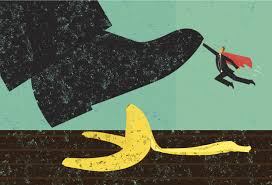Life in your 20s could mean any number of things. I know people in graduate school, backpacking across Europe, and with 2+ children.
No matter your circumstances I’ve seen and experienced a few common big money mistakes.
1. Living large right out of college
You’ve spent the last four years broke. So now you’re getting paid decent money, why not buy a new car and upgrade to the luxury apartment without a roommate? Money directly correlates to freedom. If you inflate your lifestyle with every paycheck, you’ll always feel broke. The more money you have, the more opportunities you’ll have to take big chances like starting your own business, moving across the country for a new job, or even building up an emergency fund for an unexpected job loss.
Furthermore, buying a new car is a horrible investment. You lose thousands of dollars as soon as you drive it off the lot. A $5,000 car will drive you from point A to point B as well as a $35,000 car.
One of the best parts of your 20s is that your time horizon for investing is incredibly long. If you invest money now and then ignore it for 10-15 years, you can make gains. Take advantage of these years to crunch your budget and invest at least 10-20 percent of your salary. Read into your 401 k options and create a game plan for your retirement.
2. Not taking care of your health
You’re not in college anymore, which means you now get hangovers and gain weight after solely consuming pizza all weekend. Many people avoid hospitals like the plague, but if you eat healthy and workout, you can save yourself thousands of dollars in future medical costs. You only have one body, and you’ll never fully appreciate good health until it’s gone.
Working out relieves stress, brings better sleep and gives you more energy. Once you experience how hard it is to burn calories, you’ll think twice before eating your fourth Zebra cake.
3. Being pressured into graduate degrees you’ll never use or don’t want.
I know many people in graduate school, but undoubtedly some are there to fulfill their parent’s wishes because they want to avoid the “real world” for a bit longer, or they don’t know what else to do with their life. Some degrees jump your pay grade, but you have to evaluate graduate degrees as a business decision. Getting a master’s degree in social work will only bury you in debt from which your future salary won’t be able to dig you out. As a rule of thumb, just go to graduate school if you’re not paying for it or your future salary will significantly offset the payments and consider your opportunity cost.
4. Losing financial hope
Graduating from graduate school with over $200,000 can be stressful, and it’s easy to shove the payment papers in a drawer so you don’t have to consider what you’ll have to do to pay it off. But you have to make a plan to tackle student loans and credit card loans, so the interest doesn’t eat your lunch. And banking on public loan student forgiveness doesn’t count (look it up, it’s a joke). Refinance if it makes sense and pay off the highest interest rate loans first.
5. Buying a house and immediately starting a family
This advice isn’t for everyone, but “you’re young and don’t know shit,” in the words of one of my mentors. If you sink $100,000 into a house, you’re stuck there when your dream job pops up across the country. While you could rent it out, it’s risky being a landlord from thousands of miles away, and rental management properties are expensive. One of the most significant benefits of being young is you’re not tied down, and you could pack up and leave town tomorrow. You have no excuses to stay at your mediocre company working a dead end job. Even if you’re in a committed relationship, the house you buy probably isn’t your girlfriend’s dream home.
There’s no going back once you start a family. The expenses accumulate immediately, and you’ll never have the time to travel the world or for your significant other to dedicate yourself to your careers. So think critically before starting a family. You’ll never know how much free time you had when you were childless.
